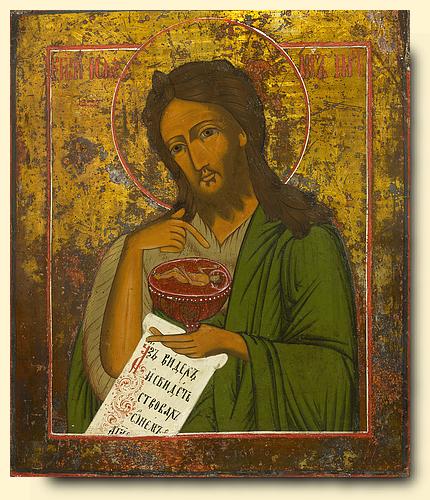All the time John the Baptist spent waiting and preparing in the wilderness was in order to steep his identity in God.1 Even before John’s conception, God had already claimed his life; John’s primary identity would always be in relation to Jesus and in how John lived out his call to ministry. Someone like John is makes us uncomfortable because his very existence points us away from ourselves and toward the kingdom of God. We do not naturally and without some inner resistance make this kind of shift from self to God. But John’s life and ministry compel us to consider the question, “What are we waiting for this Advent and in our lives?”
Our own personal longings, those things for which we beseech God and wait on God’s answer, are valid, but we must also remind ourselves that God’s self-revelation and promised fulfillment of our longings are always intended for healing and reconciliation in the larger community. We must ask ourselves how we can hold vigil for the groaning of humanity that is larger and more expansive than our own. How do we sync our personal stories with the master story and stay open to being subsumed by what God is doing in the world? These are the kinds of questions that both Elizabeth and Mary had to contend with as their children grew up. Elizabeth and Zechariah had longed for and prayed for a child their entire lives. God answered their prayers, but there was more to that answer than their personal satisfaction. John was certainly a source of deep joy for his parents, just as the angel Gabriel had pronounced (Luke 1:14). Yet John is not remembered primarily as the blessed answer to prayer or the miracle child of Elizabeth and Zechariah; he is remembered as the one who came to prepare the way for the Son of God. Elizabeth’s hunger was only satisfied in God’s ensuing plan to satisfy the deep hunger of the world.
So where does this leave us? How should we think about the things for which we are personally longing and waiting? What does God’s desire for a reconciled and healed world have to do with our desire for children, companionship, vocational fulfillment, and other yearnings? These are uncomfortable questions because they lack easy or definitive answers. There is nothing wrong with having our particular desires and prayerfully laying them before God. Indeed, we were created to flourish in the gift of God’s world while waiting for the fullness of the kingdom. Yet we always should remain open to having our desires trumped by what God may invite us into for the sake of helping foster God’s kingdom on earth as it is in heaven.
Elizabeth and Zechariah bear witness to how our deep desires can match up with God’s desires for us. But God’s longings for us always seem connected to a bigger picture that includes others. From what we see in Scripture, God’s story always makes room for those whom society wants to push to the margins for all sorts of reasons. Part of waiting in Advent is wrestling with the tensions we discover as we let God’s desires speak into ours.
Prayer
Lord, make us willing to hold and nurture the desires you plant in us. Amen.
1. This piece was adapted from Okoro, Silence: And Other Surprising Invitations of Advent (Nashville, TN: Upper Room Books, 2012). Used with permission.
